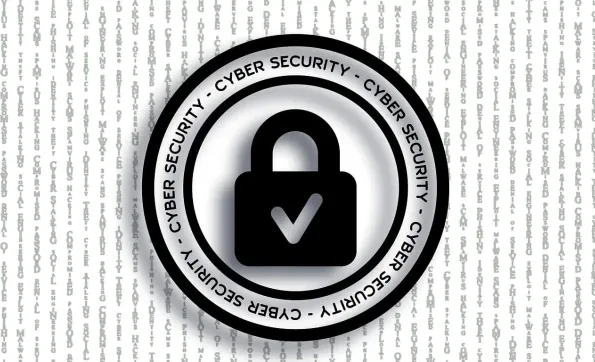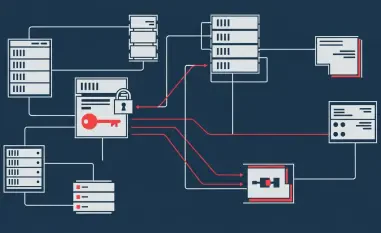The inaugural Cyber Security Town Hall, organized by the National Office of Cyber Security (NOCS) and the Australian Cyber Security Centre (ACSC), marks a pivotal moment in the journey toward enhanced cybersecurity in the healthcare sector. With the healthcare industry being the most frequently attacked non-government sector, and the 2024 Annual Cyber Threat report revealing a global uptick in cyber espionage, the event’s importance cannot be overstated. The Town Hall was a platform that brought together healthcare professionals, cybersecurity experts, and government officials to discuss strategies and solutions for securing sensitive medical data, intellectual property, and research.
One of the primary concerns highlighted during the event was the alarming frequency of ransomware attacks targeting the healthcare sector. These attacks aim to disrupt essential services and, more crucially, gain access to sensitive patient information, which can then be held for ransom. The stakes are particularly high given that unpatched medical devices and research-related data represent significant vulnerabilities that foreign actors are increasingly targeting. Presenters stressed that the industry’s current level of preparedness for such threats is insufficient and called for immediate action to bolster defenses.
Cyber Threat Landscape in Healthcare
Healthcare’s susceptibility to cyber threats is increasingly becoming a focal point for cybersecurity experts globally. The 2024 Annual Cyber Threat report has illustrated how healthcare entities, from hospitals to research institutions, are prime targets for cyber espionage. Intellectual property, clinical trials, and sensitive medical research are viewed as highly valuable by foreign actors, driving a surge in attempts to infiltrate these systems. During the Town Hall, experts outlined various attack vectors, including phishing campaigns, ransomware, and advanced persistent threats (APTs), emphasizing the need for a multi-faceted defensive strategy.
Another point of great concern is the lack of preparedness within the healthcare sector to deal with sophisticated cyber threats. Unpatched medical devices, which are often left vulnerable due to outdated software or lack of timely updates, present significant entry points for attackers. Similarly, research-related data, a treasure trove of valuable information, is frequently left unprotected. This lack of readiness not only places patient information at risk but also threatens the integrity and confidentiality of crucial medical research and intellectual property. The necessity for healthcare providers to strengthen their cybersecurity measures was evident, with a strong emphasis on the urgency of the issue.
Recommendations and Resources
To help mitigate these escalating risks, the ACSC offered several crucial recommendations during the Cyber Security Town Hall. A key suggestion is the implementation of multi-factor authentication (MFA) to provide an additional layer of security for access management systems. MFA has been recognized as a critical tool in safeguarding against unauthorized access attempts. Furthermore, the establishment of proxy services capable of blocking repetitive cyber access attempts was also highlighted as a vital measure for healthcare entities. The ACSC underscored the importance of adopting these security practices to significantly bolster the sector’s cyber defenses.
In addition to immediate protective measures, healthcare organizations are encouraged to leverage a variety of resources and initiatives provided by the government. The Australian Digital Health Agency (ADHA) has developed digital tools and playbooks designed to facilitate comprehensive incident response strategies and support ongoing cybersecurity education. These resources encompass everything from preemptive cyber alert systems to practical eLearning modules aimed at reinforcing a culture of cybersecurity within the healthcare industry. By integrating these tools into their broader infrastructure, healthcare providers can build a more resilient defense posture against cyber threats.
Collaborative Efforts and Future Actions
The first Cyber Security Town Hall, organized by the National Office of Cyber Security (NOCS) and the Australian Cyber Security Centre (ACSC), represents a crucial step toward improving cybersecurity in the healthcare industry. Given that healthcare is the most frequently attacked non-government sector, and the 2024 Annual Cyber Threat report indicates a rise in global cyber espionage, this event was incredibly significant. The Town Hall offered a platform for healthcare professionals, cybersecurity experts, and government officials to discuss strategies for protecting sensitive medical data, intellectual property, and research.
One of the main issues highlighted was the frightening frequency of ransomware attacks on the healthcare sector. These attacks disrupt essential services and aim to gain access to sensitive patient information, holding it for ransom. The situation is critical as unpatched medical devices and research-related data are major vulnerabilities targeted by foreign actors. Presenters emphasized the inadequacy of the industry’s current defenses against these threats and urged immediate action to strengthen security measures.













